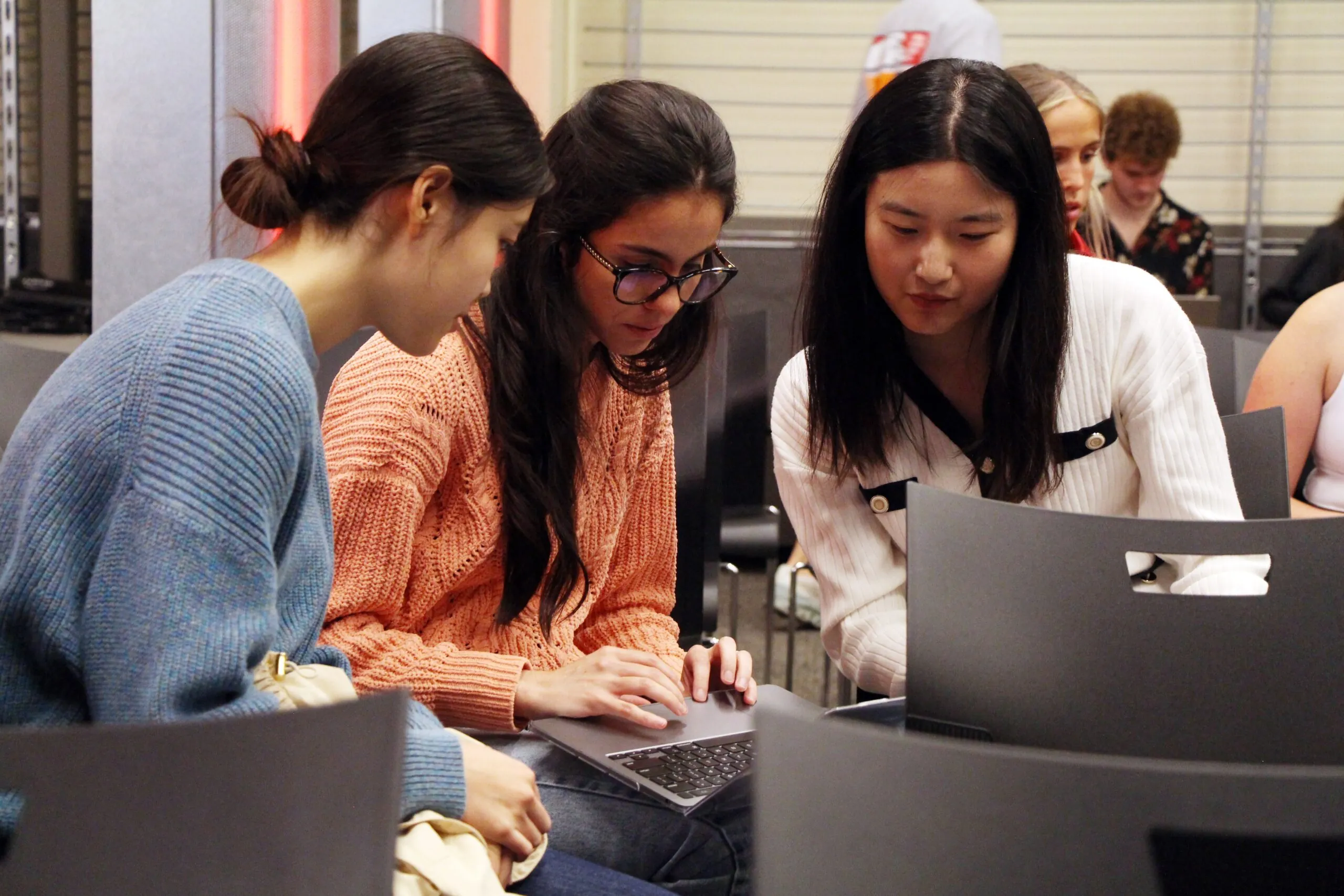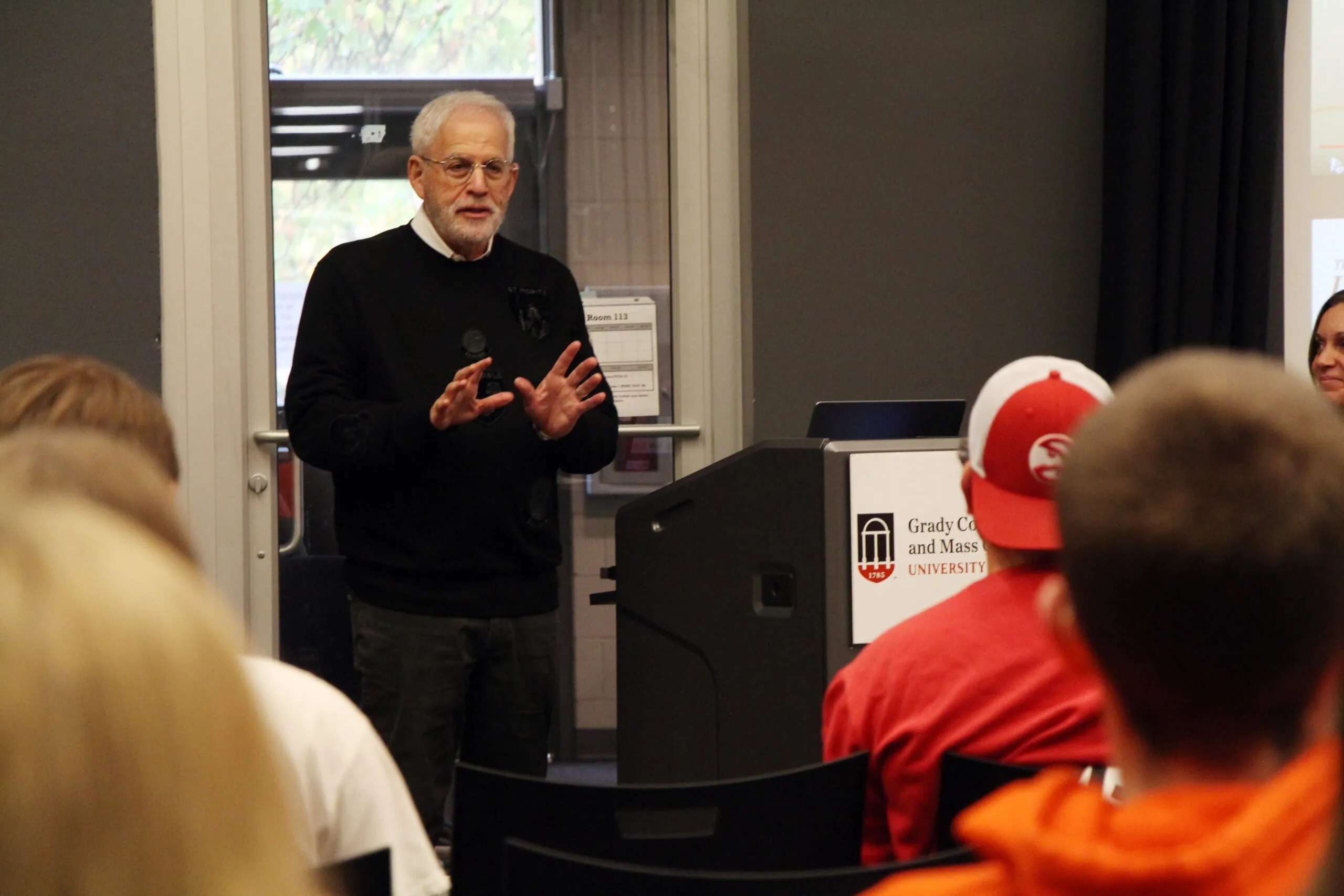Students Learn to Fight Misinformation in Real Time at Hackathon, Featuring Adam Levin and Seana Davis

Students Learn to Fight Misinformation in Real Time at Hackathon, Featuring Adam Levin and Seana Davis
| Listen to a special episode of The Lead, featuring coverage of the Hackathon and an interview with Adam Levin. |
University of Georgia students learned firsthand how to fight misinformation at the Cox Institute’s What the Hackathon on Nov. 10 in Studio 100. More than 50 students played trivia, heard from speakers and completed a reporting simulation from the BBC to hone their skills in identifying false information and producing news responsibly.
Adam Levin, host of the podcast What the Hack and sponsor of the event, kicked off the Hackathon by addressing students.
“What you’re doing here today is important. What you will be doing in life is critically important,” Levin said. “I’ve found in my life, the most dangerous words in the English language are, ‘What? I read it on the internet.’”
The Cox Institute’s directors, Amanda Bright, Keith Herndon and Lori Johnston, ran the two-hour event, the bulk of which was a reporting simulation called iReporter. Students played the role of a new hire on the BBC’s social media team and were tasked with figuring out what to post on the news outlet’s feeds about a social media blackout. They were judged on speed, impact and accuracy.
Nicholas Lezama was on one of the winning teams. Each winning team received a Cox Institute medal and sticker. Lezama said he left the simulation better able to verify whether information is real or fake.
“Take everything you read on the internet with a grain of salt, because we’re at the point where we don’t know what’s real anymore,” Lezama said.

Seana Davis, a misinformation specialist with Reuters Fact Check, gave students tips on exactly that.
“You need to just have that ability to step back and to ask questions. Trying to figure out the source, for example, is really, really important,” Davis said. “Having what I call a toolkit ready to go when you’re online is really important.”
Davis encouraged students to check the comment sections and look for fake logos and other red flags. She also recommended lateral research, searching for the same information across other, credible sources to determine if something is real. For images and videos, Davis recommended reverse image search engines.
The Cox Institute will host a Hackathon every semester as part of its mission to train students in news literacy. The Institute also offers a Certificate in News Literacy that hones students’ skills in discerning credible information and information disorder through critical examination of how people access, analyze, verify, create and share media messages — with an emphasis on news. The certificate is open to all students enrolled at UGA.
Levin said programs like the Certificate in News Literacy and the What the Hackathon are crucial in combating misinformation, especially in our polarized society.
He had advice for aspiring journalists and everybody who consumes media online.
“Be aware. Be careful. Be inquisitive. Never lose your curiosity. And don’t be complacent,” Levin said. “When it comes to receiving what is presented to you as news, always ask your question — does this make sense? It may tell me something that makes me feel comfortable or gets me really mad. But should I be comfortable? Should I be mad?
“Make the right decision, because a lot is riding on it.”
Author: Jacqueline GaNun